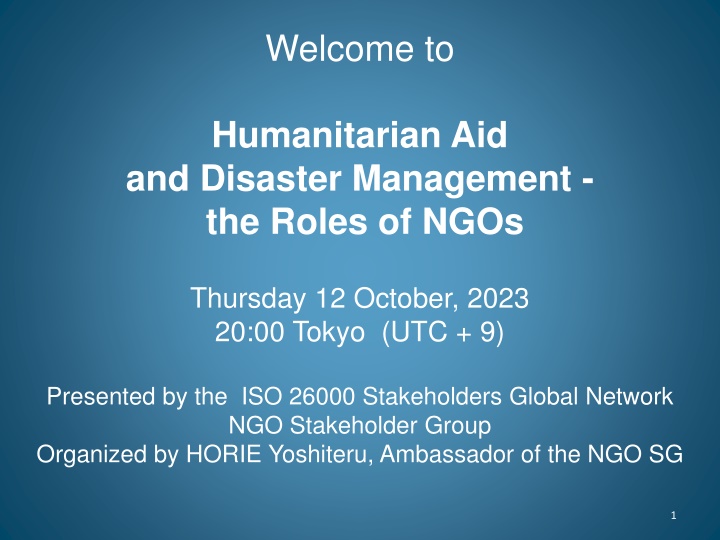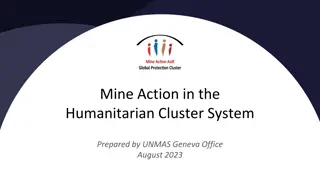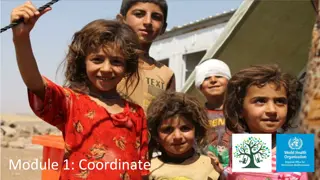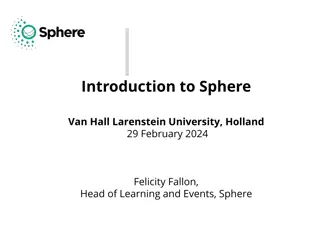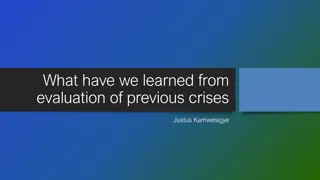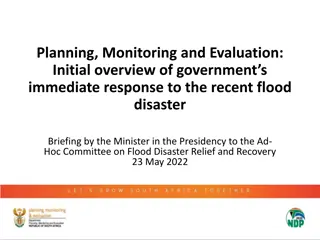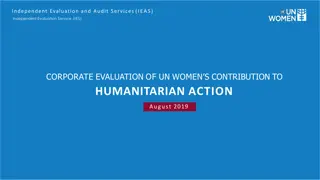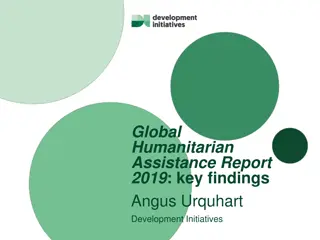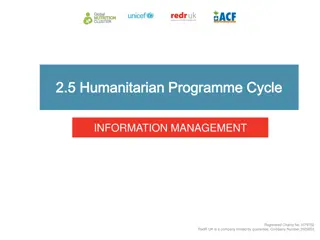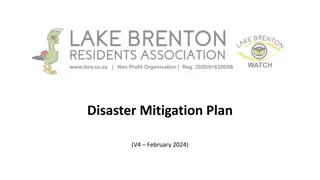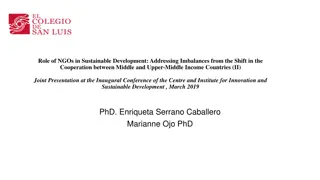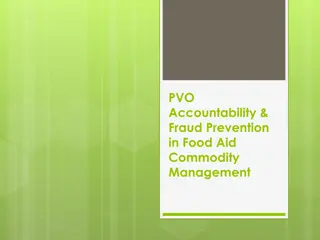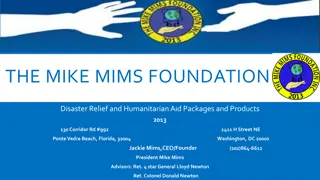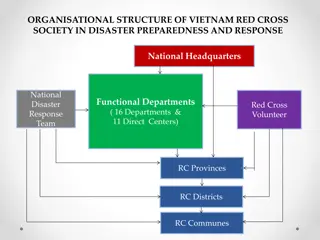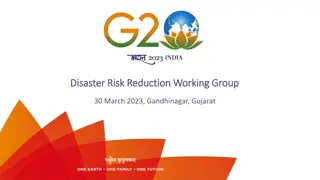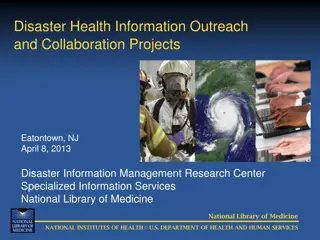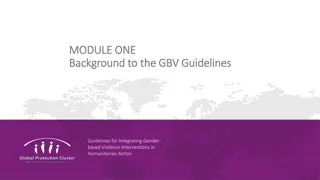Roles of NGOs in Humanitarian Aid and Disaster Management
Explore the crucial role of NGOs in responding to crises and disasters, as well as in the prevention and management of future emergencies. Learn about ISO 26000 guidelines on global social responsibility and how organizations can protect vulnerable groups in risk situations. Gain insights from experienced presenters and discover ways to enhance humanitarian efforts worldwide.
Download Presentation

Please find below an Image/Link to download the presentation.
The content on the website is provided AS IS for your information and personal use only. It may not be sold, licensed, or shared on other websites without obtaining consent from the author.If you encounter any issues during the download, it is possible that the publisher has removed the file from their server.
You are allowed to download the files provided on this website for personal or commercial use, subject to the condition that they are used lawfully. All files are the property of their respective owners.
The content on the website is provided AS IS for your information and personal use only. It may not be sold, licensed, or shared on other websites without obtaining consent from the author.
E N D
Presentation Transcript
Welcome to Humanitarian Aid and Disaster Management - the Roles of NGOs Thursday 12 October, 2023 20:00 Tokyo (UTC + 9) Presented by the ISO 26000 Stakeholders Global Network NGO Stakeholder Group Organized by HORIE Yoshiteru, Ambassador of the NGO SG 1
Our presenters today have first-hand experience with different aspects of humanitarian aid and disaster management from first response to crises such as earthquakes and famines, to prevention of future disasters through outreach and planning. This event is hosted by the ISO 26000 Stakeholders Global Network, which works to promote global social responsibility through information about ISO 26000, the global guidance standard for all organisations on this topic. According to ISO 26000, protection of vulnerable groups in risk situations is a responsibility of all organisations, including governments, businesses, and NGOs. 2
Human rights risk situations include poverty, drought, extreme health challenges or natural disasters (ISO 26000, 6.3.4.1) What does ISO 26000 say about actions in these situations? Due diligence is a process to identify the actual and potential negative social, environmental and economic impacts of an organization s decisions and activities over the entire life cycle of a project .with the aim of avoiding or mitigating negative impacts. (2.4) 3
in particular, it is important not to compound or create other abuses.....(6.3.4.2) An organization should consider itself as part of, and not separate from, the community..... recognize and have due regard for the rights of community members to make decisions in relation to their community (ISO 26000, Clause 6.8.2.1) 4
With these points in mind the presentations follow Rescue Missions in Times of Crisis HORIE Yoshiteru President, AAR-Japan Stampede in School Perspective Brig (Dr) B.K.Khanna (India) Member, UN DRR (Disaster Risk Reduction) ARISE* Global Board *Private Sector Alliance for Disaster Resilient Societies Rebuilding for Prevention of Future Disasters - Joseph Denougbeto (Benin) President. La Grande Puissance de Dieu 5
Presentations are posted separately Contact any of these people or organisations for further information: ISO 26000 Stakeholders Global Network: https://iso26000sgn.org/ HORIE Yoshiteru (Japan) - President AAR-Japan: yoshiteru-horie@aarjapan.gr.jp Brig. B.K. KHANNA (India) - Global Board UNDRR ARISE: bkkhanna2@gmail.com Joseph DENOUGBETO (Benin) - President, La Grande Puissance de Dieu onglagrandepuissancededieu@gmail.com Carolyn SCHMIDT, Program Director, ECOLOGIA (USA) - cschmidt@ecologia.org 6
